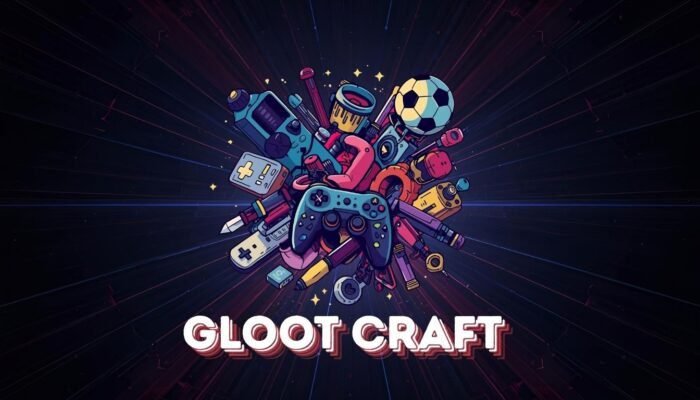“Literacy as the Medium” In the contemporary era, where numerous options are available, and career opportunities are rewardingly amiss, it can be strongly stated that ‘literacy is the precursor’ in unlocking various avenues in the walk of life. As industries increasingly rely on digital communication and information processing, a strong grasp of literacy goes beyond mere reading and writing.
It involves understanding and leveraging diverse media and technologies to communicate effectively, solve complex problems, and make informed decisions. Literacy empowers individuals to access, interpret, and critically evaluate information, fostering skills that are essential for navigating the evolving job market and thriving in numerous professional fields.
Literacy has long been recognized as a fundamental skill, but in the fast-paced world of today, it’s more than just the ability to read and write. Literacy as the Medium is about using literacy as a central tool to foster growth, empower individuals, and unlock potential in personal, professional, and societal dimensions. This concept transcends basic education, emphasizing literacy as a bridge to career success and life opportunities.
Historical Context and Evolution of Literacy as the Medium
Early Foundations of Literacy
Historically, literacy was a privilege reserved for elites, serving as a marker of social status and power. The ability to read and write was confined to religious, political, and economic circles, playing a crucial role in governance and the dissemination of information.
The Printing Revolution
The invention of the printing press in the 15th century democratized access to information, paving the way for broader literacy. This technological advancement marked a significant shift, allowing books and written materials to reach a wider audience and laying the groundwork for mass education.
Literacy in the Industrial Age
The Industrial Revolution brought about significant changes in literacy needs. With the rise of industrialization, a well-informed workforce became essential. Public education systems were established, promoting literacy as a means to drive economic progress and personal empowerment.
Digital Transformation and Modern Literacy
In the 21st century, literacy has evolved to encompass digital literacy, reflecting the pervasive influence of digital technologies in everyday life. The ability to navigate digital platforms, critically assess online content, and effectively communicate in a digital space are now integral components of literacy, redefining its role in career development and societal engagement.
The Power of Literacy
Literacy as the Medium is a force that extends its influence to personal, professional, and societal spheres in ways many may not fully appreciate. It’s not merely a skill but a tool that empowers individuals to communicate effectively, think critically, and solve problems innovatively.
The Role of Literacy in Personal Growth
Personal growth begins with literacy, which is not confined to reading and writing but includes the comprehension and application of knowledge. Whether it’s managing personal finances, understanding health information, or participating in community discussions, literacy equips individuals to lead more informed lives.
Consider a young adult who dreams of starting a small business. Through literacy, they gain the foundation to draft a solid business plan, engage with customers, and negotiate with suppliers. Without it, the path to success is obstructed by communication and operational barriers. Similarly, literacy fosters creativity, enabling lifelong learners to absorb cultural and global perspectives, thereby enriching their lives holistically.
Enhancing Communication and Collaboration
If communication is the backbone of any professional relationship, then literacy is the skill that strengthens it. Written communication—emails, proposals, reports—requires a proper command of language. Oral communication often demands the ability to interpret texts or data and convey ideas with precision.
Professionals who harness Literacy as the Medium excel at fostering collaboration, whether as team members or leaders, creating value for their organizations. For example, consider how a marketing professional drafts impactful campaigns that persuade and resonate with a target audience. Their success is tied to their level of literacy and understanding.
Societal Impact of Literacy
Literacy is more than an individual tool; it is a societal asset that can transform communities and economies. Research consistently shows that countries with higher literacy rates enjoy stronger economic performance, lower crime rates, and increased civic engagement. Programs like Kerala’s Adult Literacy Program in India demonstrate how focused literacy campaigns can empower communities, particularly women, to drive social and economic welfare.
Through its role in encouraging informed decision-making, shaping active citizenship, and enabling cross-cultural understanding, Literacy as the Medium profoundly impacts society, creating a ripple effect of social and economic benefits.
Literacy in the Digital Age
The digital era has redefined what it means to be literate. It’s no longer sufficient to read books or write essays; literacy now encompasses the ability to engage with digital platforms, interpret online information, and leverage technology to enhance productivity.
Digital Literacy’s Role in Modern Life
Literacy as the Medium in the digital age includes understanding and navigating tools such as email, social media, cloud software, and other digital resources. Digital literacy is essential for everything from completing online job applications to participating in virtual meetings.
For example, a graphic designer must use design software, collaborate using communication platforms, and stay updated on industry trends through online learning. Without a strong foundation in digital literacy, such activities can become unmanageable.
Bridging the Digital Divide
A critical part of digital literacy includes solving the problem of the digital divide, or the level of accessibility to technology resources. Low literacy levels exacerbate this divide, leaving many unable to benefit from online resources and career opportunities.
Programs like the World reader Project illustrate innovative efforts to bridge this divide. By providing digital books and reading platforms to underserved communities, initiatives like these make Literacy as the Medium accessible to the digitally marginalized.
Literacy and Career Advancement
Among its many applications, literacy is undoubtedly key to thriving in the workplace. Literacy as the Medium directly correlates with career advancement, enabling individuals to excel in almost every industry.
The Connection Between Literacy and Employability
Many jobs demand more than technical skills; they require literacy skills such as writing reports, interpreting data, and clear communication. For instance:
- A software engineer must write documentation for their code while also understanding legal agreements their work necessitates.
- Healthcare workers need to process complex medical texts to provide quality patient care.
Thus, literacy opens doors to jobs that rely on effective information processing and communication.
Real-World Examples
Industries worldwide validate the role of literacy in career growth:
- The National Literacy Trust in the UK highlights partnerships like the Premier League’s Reading Stars Program, which connects literacy to lives and career aspirations.
- Closer to home, low literacy has been identified as a barrier for many adults in the U.S. workforce, with adult education programs stepping in to bridge these gaps.
Lifelong Learning for Career Growth
The continuously evolving job market means the skills you have today may not suffice tomorrow. Experts stress the importance of lifelong learning, something that Literacy as the Medium encourages. By remaining adaptable and open to up skilling, individuals position themselves to meet new challenges, whether that means transitioning into leadership roles or shifting career paths.
Promoting Literacy: Educational and Societal Impact
Literacy doesn’t exist in isolation. It’s the collective responsibility of society—citizens, educators, governments, and organizations—to cultivate literacy for all.
Educators as Gatekeepers
Teachers and educational institutions are champions of literacy. From early childhood education to adult learning programs, pedagogy that emphasizes the practical and creative aspects of literacy ensures that students of all ages are prepared to thrive.
For example, Pima County Public Library’s All Ready to Read program empowers young readers, while adult community centres focus on preparing adults for today’s job market.
Case Studies in Literacy
The Literacy Coalition of Central Texas is a prime example of community-driven literacy success. By integrating workforce skills with literacy programs, they empower adults to be better prepared for job markets. These initiatives underscore how literacy initiatives can shape individuals’ lives and entire communities.
Community Engagement
Citizens and businesses also play critical roles. By promoting book clubs, offering free writing workshops, and supporting literacy non-profits, communities can rally together to create a culture where learning is a shared value.
Literacy as the Medium: Challenges and Future Directions
Current Challenges in Literacy
Disparities in Education Access
One of the major challenges in promoting literacy is the uneven access to quality education across different regions and communities. Socioeconomic status, geographic location, and resource availability can all impact individuals’ ability to achieve literacy.
The Impact of Technological Advancements
While technology has significantly enhanced access to information, it also introduces challenges such as digital distractions. Moreover, rapid technological change demands continuous updates in literacy education to keep pace with new tools and platforms.
Language Barriers
In multilingual societies, language barriers can pose significant challenges to achieving widespread literacy. Addressing these barriers requires strategies that accommodate diverse linguistic backgrounds while maintaining educational standards.
Future Directions in Literacy Development
Integrating Technology into Literacy Education
Harnessing technology for literacy education involves designing interactive and engaging digital learning environments. This includes the development of adaptive learning software and virtual reality experiences that cater to different learning styles and needs.
Community-Based Literacy Programs
Future literacy efforts must prioritize community involvement, creating localized programs that address specific needs. Collaboration with local organizations and stakeholders can lead to more effective literacy initiatives that align with community values and resources.
Policy and Support Systems
To expand literacy’s impact, government and policy-makers need to implement comprehensive literacy strategies. This includes increasing funding for literacy programs, providing teacher training, and establishing robust support systems that ensure sustained literacy advancement for all.
Literacy as the Medium : A Tool for Social Mobility
- Enhances Access to Employment: Literacy provides individuals with the ability to understand job applications, create compelling resumes, and succeed in interviews, thus increasing their chances of securing desirable employment positions.
- Facilitates Higher Education and Training: With strong literacy skills, individuals are better prepared to pursue higher education and vocational training, opening doors to advanced career opportunities that require specialized knowledge.
- Empowers Entrepreneurial Ventures: Literacy supports entrepreneurial potential by enabling individuals to develop business plans, manage finances, and navigate legal requirements, thus fostering self-employment and small business success.
- Promotes Career Growth and Advancement: Adequate literacy skills are essential for professional development, allowing individuals to engage in continual learning, adapt to new technologies, and fulfil increasing job responsibilities.
- Enables Effective Networking: Literacy aids in professional networking by equipping individuals with the skills necessary to communicate effectively, build relationships, and leverage connections for career advancement opportunities.
FAQs About Literacy as the Medium
What is meant by “literacy as the medium”?
Literacy as the medium refers to the role of literacy in facilitating learning and communication across various forms of media and educational contexts.
How does literacy as the medium support career development?
By enhancing comprehension and communication skills, literacy as the medium equips individuals to navigate complex job markets and continuously adapt to new career demands.
Why is literacy as the medium important in digital learning environments?
Literacy as the medium enables students to effectively engage with digital content, enhancing their ability to access and utilize information in technology-driven settings.
Can literacy as the medium impact community development?
Yes, literacy as the medium can drive social and economic growth by empowering individuals with skills that improve their participation in community initiatives.
How does literacy as the medium align with lifelong learning goals?
Literacy as the medium facilitates continuous education by providing foundational skills necessary for ongoing personal and professional improvement.
What role do educators play in promoting literacy as the medium?
Educators implement pedagogical strategies that emphasize literacy as the medium to prepare students for diverse learning experiences and real-world challenges.
How can businesses benefit from promoting literacy as the medium?
By fostering environments that prioritize literacy as the medium, businesses can enhance workforce capabilities and drive innovation through improved communication and problem-solving.
What challenges exist in advancing literacy as the medium across different cultures?
Diverse languages and cultural contexts can present barriers, but literacy as the medium encourages inclusivity by accommodating various linguistic and cultural needs.
How does literacy as the medium contribute to personal empowerment?
Literacy as the medium equips individuals with the knowledge and confidence to advocate for themselves and make informed decisions in their personal lives.
What existing policies support literacy as the medium on a national scale?
Government and educational policies that focus on enhancing literacy as the medium typically involve increased funding, teacher training, and development of resources for all learner levels.
Conclusions and Call to Action
Literacy as the Medium is undeniably a driving force in our personal and professional lives. From empowering individuals and communities to unlocking broad economic benefits, its relevance continues to grow in the digital age. Literacy isn’t just a tool; it’s a key to personal growth, societal advancement, and career success.
No matter your age or career stage, enhancing your literacy opens up opportunities to thrive in ways you may never imagine. It’s a lifelong endeavour, one that promises rewards for individuals and the communities they touch.






